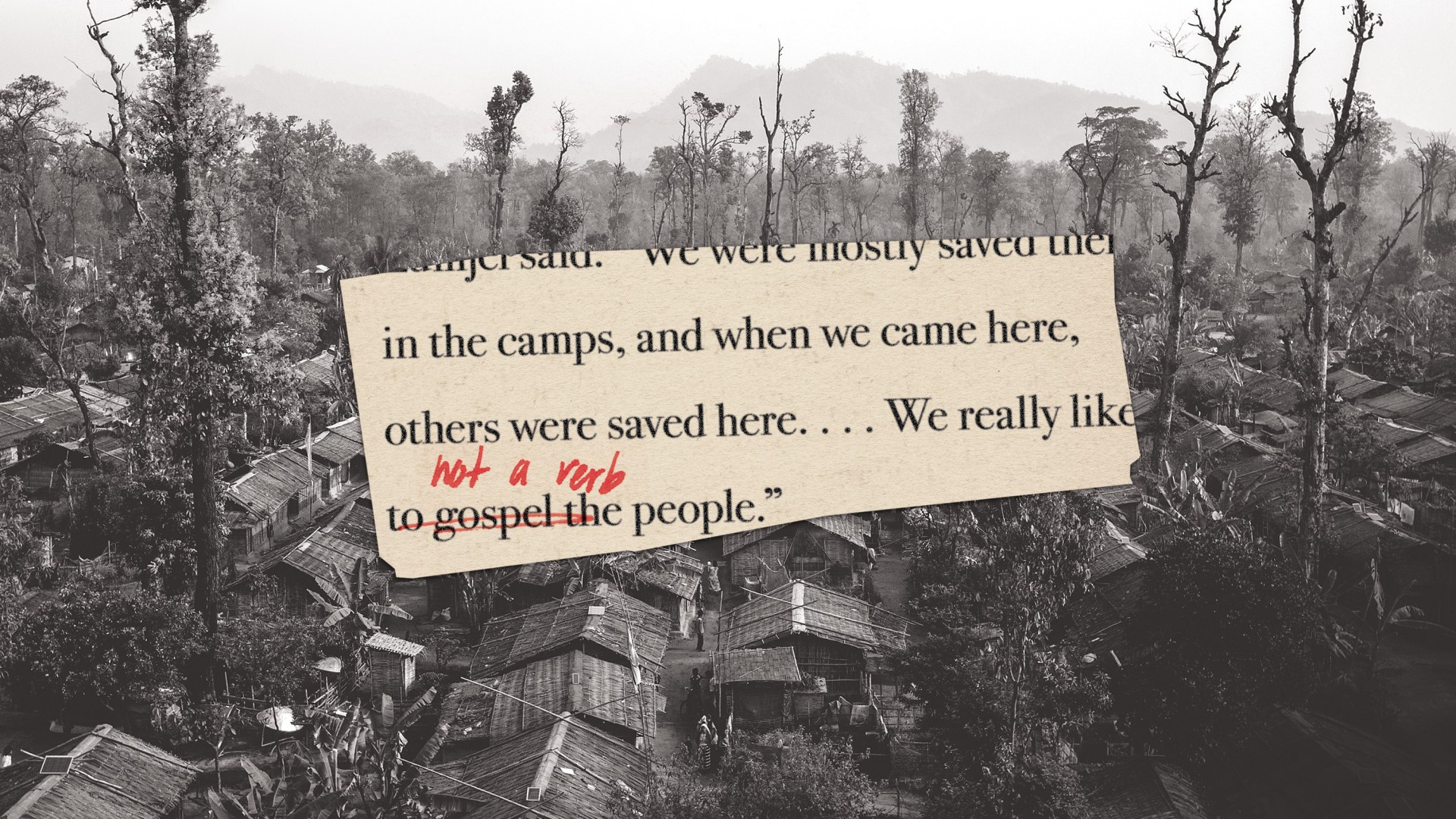We really like to gospel the people,” Dilli Lumjel told CT’s Angela Lu Fulton while she interviewed him for “Bhutanese Nepali Refugees Turn Their Trials into Zeal for Evangelism.”
“Gospel is not a verb,” I scrawled in the margin alongside my other editorial notes during my initial read through an early draft.
I later learned that Lumjel used gospel as a verb repeatedly in their conversations. He used it “so much,” Fulton told me, “that I started to do it too!” What may be technically incorrect—due to differences in translation for a non-native English speaker—is also theologically profound.
“What God gives us, we gospel,” Lumjel said of his Bhutanese Nepali Christian community. This is the very model we see over and over again in Scripture.
When Jesus was nearby, John the Baptist pointed others toward him: “Look, the Lamb of God!” (John 1:36). When Jesus spoke to a Samaritan woman and confirmed he was the Messiah, she “went back to the town and said to the people, ‘Come, see a man who told me everything I ever did. Could this be the Messiah?’” (4:28–29).
As Jesus suffered on the cross, a criminal crucified near him spoke out in defense of Jesus, turning to him in faith (Luke 23:40–43). When Jesus died, the centurion standing guard with other soldiers “exclaimed, ‘Surely he was the Son of God!’” (Matt. 27:54).
And after Mary Magdalene encountered the risen Christ that first Easter morning, she “went to the disciples with the news: ‘I have seen the Lord!’” (John 20:18).
From the disciples who embraced the Great Commission to Paul on his missionary journeys to Lydia who led her family to faith, Scripture depicts people naturally and instinctively sharing the Good News. We see the gospel in action as action.
Several articles in our April issue integrate core gospel themes. New Testament scholar Jarvis J. Williams reflects on the life-changing truth of John 3:16. Jasmine L. Holmes discusses Christ’s victory over guilt and shame in our lives. John R. Schneider unpacks how Christians can view suffering—in particular animal suffering—in light of God’s redemptive story. And Fulton details how the gospel brought new life in a refugee camp, as well as how Bhutanese Nepali believers bring their zeal for Christ to the American communities they now call home.
As we celebrate Easter, may we be people who not only receive the Good News but give it generously, naturally, effusively. May we be a gospel-ing people.
Kelli B. Trujillo is print managing editor of Christianity Today.










